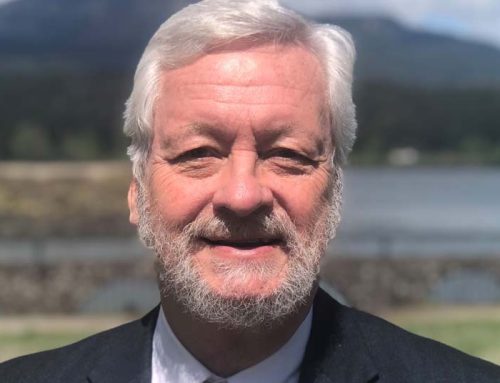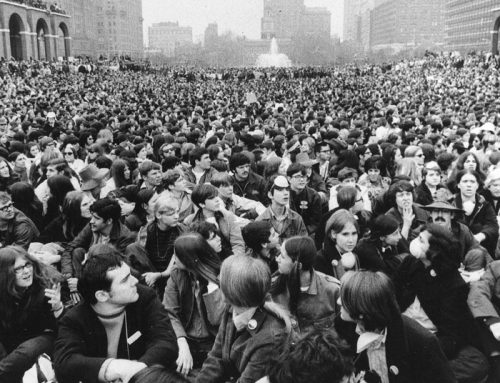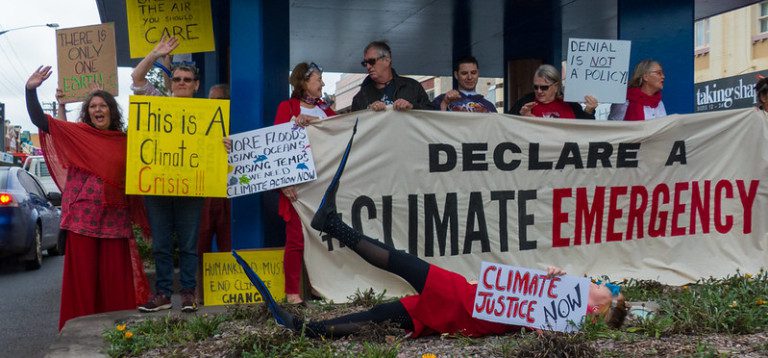
Photo by Darryl Lloyd
This article is related to a story we published in March: Morrison Park: Where habitat and housing collide
By Dac Collins. Nov. 14, 2019. Results from Hood River’s local election on Nov. 5 show that Measure 14-67 passed with 72% of the vote last Tuesday. Billed as the “Protect our Parks” measure by its supporters, it amends the city charter in order to prevent city parks from being sold without an authorizing vote by the people.
Until now, the city charter has given the City Council full discretion over how Hood River’s parks should be utilized. This can lead — and has led — to disagreements between city officials and residents (and between residents themselves), particularly when the development of a public green space has been proposed. The most recent and contentious example of this disharmony is the years-long controversy surrounding Morrison Park, also known as “Tax Lot 700” — which the City Council tried to sell to the Mid-Columbia Housing Authority for $1 in order to develop affordable housing there.
The City Council’s attempts to re-zone the park, which began in 2017, were vehemently opposed by a number of local residents from the start. That group included Susan Crowley, who appealed the City Council’s decision to the Oregon Land Use Board of Appeals (LUBA), and subsequently the state Court of Appeals, later that summer. And in September of 2017, the Court of Appeals remanded the City’s decision, finding its reasons for rezoning “implausible”.
This forced the city to revisit the issue earlier this year, and on March 11, the City Council held a lengthy public hearing that ended with Mayor Paul Blackburn casting the tie-breaking vote to rezone the 5.3 acre parcel from Open Space and Public Facilities (OS/PF) to Urban High Density Residential (R-3).
This move sparked a grassroots effort, led in part by Crowley, to amend the city charter in order to guarantee that voters would have the right to choose whether they want to sell or give away a city park in the future. It also motivated Crowley to file another appeal to LUBA, the results of which are still pending.
The measure that made it onto the November ballot arose out of an initiative petition that was filed by Brian Carlstrom and Tracey Tomashpol* in June.
“Many people told us how they valued parks as a place where kids could get to quickly and then safely play outside,” Tomashpol said, referring to the responses they received while explaining the measure to local voters.
“Parks belong to the people,” she added. “People should get a vote before a park is given up for other uses.”
Opponents to Measure 14-67 argued that its passage would undermine the democratic process and erode civil trust in elected officials. Casting the debate as an ideological divide between those in favor of affordable housing and those against it, some also claimed the ballot measure was little more than a legislative form of NIMBY-ism.
Meanwhile, supporters of the measure contended that greater public oversight would actually strengthen the democratic process by encouraging citizen involvement, and they pointed to the growing population of Hood River and the need to preserve and secure public green spaces. Some pointed out that the erosion of civil trust in elected officials had already begun, thanks in part to actions the City Council has taken regarding Morrison Park in recent years.
Newly elected Mayor Kate McBride told the Hood River News she was “disappointed that it passed, but not surprised as the petition supporters had a good campaign.”
“I think it may hinder the city’s ability to be flexible with land holdings in the future. Where we might want to obtain or trade a property, we’ll have to be very cautious in that respect. And with any temporary uses we’re going to be more constrained when it comes to parks,” McBride continued.
Council President Mark Zanmiller, who likewise opposed the measure, told the local newspaper that “the main focus of protecting parks resonated, and I agreed with that part. The question is, how do we go forward? We’ll find a way at the city to respect and fulfill the rule. It will be the rule we have and it’s not a matter of contesting it but of absorbing it into our process.”
“The most important thing to come out of this is how do we address the mistrust that was at the root of this thing,” Zanmiller said.
*In order to maintain transparency with our readers, we want to clarify that Tracey Tomashpol is on Columbia Insight’s Board of Directors.











